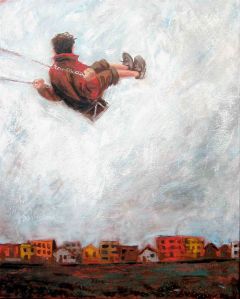International Women’s Day (IWD) will be celebrated this weekend. Although progress has been made regarding women’s rights and equality, the basic right to a safe and affordable home will be out of reach for too many women across the globe and here in Manitoba.
Public demand to buy food directly from farmers is growing. In Manitoba the government response has been slow and the regulatory hurdles are discouraging. The recent release of Advancing the small scale, local food sector in Manitoba is a first step but farmers are asking if it will really make any difference.
The Maclean’s article citing Winnipeg as Canada’s most racist city has prompted a public conversation that may prove to be useful. It is important that Winnipeg’s two solitudes get to know each other, at a personal and social level, and that non-Aboriginal people speak to and about Aboriginal people in a way that is respectful.
For Immediate Release – Press Release from the Canadian Centre for Policy Alternatives Manitoba and the Community Economic Development Association Manitoba
Premier Greg Selinger lends his support to the comprehensive approach endorsed by 95 community organizations in The View from Here 2015: Manitobans Call for a Renewed Poverty Reduction Plan.
To address persistent poverty in this province, community groups have outlined a plan to provide Manitobans with the tools they need for a life of dignity and opportunity. The View from Here 2015: Manitobans Call for a Renewed Poverty Reduction Plan assembles the ideas and findings of on-the-ground experts and recent research in a comprehensive package of recommendations endorsed by over 90 organizations across the province.


Last year’s municipal election accommodated a healthy discussion on public transit. It was largely agreed that efficient, frequent and affordable transportation creates a vibrant city and is necessary if we are to take climate change seriously. An efficient transit system is the key to connecting communities, but the ability of past City administrations to expand services to keep pace with urban sprawl is wanting. There are high expectations that our new mayor and council will finally bring Winnipeg’s transit system into the 21st century.
In response to “Generosity doesn’t solve poverty” Winnipeg Free Press article December 17
Mary Agnes Welch is right when she says charity is “not fixing the province’s most serious problem. However, her critique of provincial anti-poverty efforts falls short. Complex problems, like the kind of poverty that exists and persists here in Winnipeg, require multi-faceted responses. We need to build on what’s working in Manitoba if we are to solve the problems of poverty here.
 The State of the Inner City Report is an annual research collaboration between the Canadian Centre for Policy Alternatives Manitoba and community organizations based in the inner city of Winnipeg. This year marks its tenth year anniversary. Since the beginning, the State of the Inner City Reports have celebrated community-based development and advanced progressive policy alternatives put forward by those working and living directly in the community.
The State of the Inner City Report is an annual research collaboration between the Canadian Centre for Policy Alternatives Manitoba and community organizations based in the inner city of Winnipeg. This year marks its tenth year anniversary. Since the beginning, the State of the Inner City Reports have celebrated community-based development and advanced progressive policy alternatives put forward by those working and living directly in the community.
Winnipeg is home to Canada’s largest Aboriginal population. Aboriginal people, however, are among the most likely to experience homelessness and are also over-represented in housing that is unaffordable, overcrowded or in poor condition. Finding housing has become a wall preventing many Aboriginal people from successfully making Winnipeg home. Moving to the City: Housing and Aboriginal Migration to Winnipeg documents the housing experiences of Aboriginal people moving to Winnipeg.





Follow us!